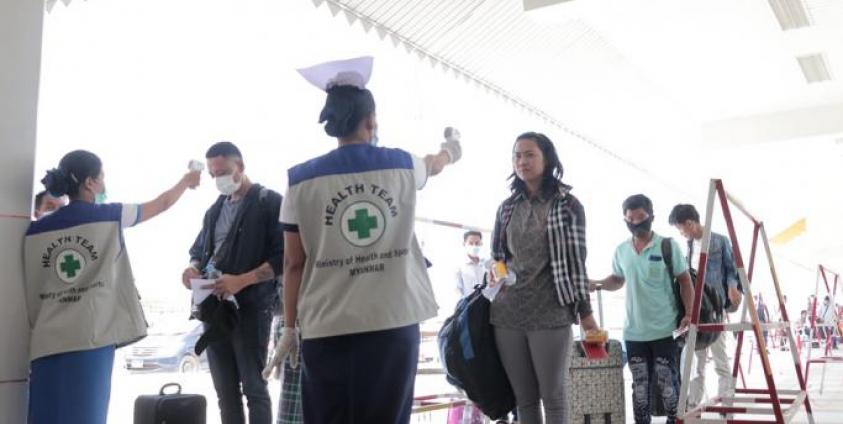A migrant support network has voiced concern over Myanmar and other regional migrants in Southeast Asia who are negatively affected by government efforts to rein in the spread of the coronavirus.
According to a statement by the Mekong Migration Network (MMN), the coronavirus (Covid-19) pandemic is having an unprecedented impact on people’s lives around the world. Migrants in the Greater Mekong Subregion (GMS) are among the most vulnerable to the present upheaval, given their limited access to healthcare, lack of job security and precarious immigration status.
MMN urges relevant authorities in countries of origin and destination to take immediate action to protect and support the welfare of migrants and their families.
The GMS faces particular challenges in responding to the present crisis given its economic dependence on migrant labour and permeable borders. As the subregion’s major destination country, Thailand is home to more than 4 million migrant workers, most of whom are from Myanmar, Cambodia and Laos. Amid the Covid-19 pandemic, the governments of Thailand,
Myanmar and Cambodia have urged migrant workers to stay put and avoid travelling back to their countries of origin.
However, many migrants have been compelled to return, as remaining in Thailand, for many, means no job, no food and a real risk of homelessness. On 26 March, Thailand declared a state of emergency by way of an Emergency Decree that introduced a raft of measures to “quickly remedy the emergency situation and prevent its escalation.”
Ahead of the Emergency Decree on 23 March, all land borders were closed, but many have since reopened, in response to the weight of migrants attempting to cross. By 25 March, the Thai government estimated that 60,000 migrants had left Thailand. The uncertainty surrounding border closures has added to the sense of panic felt within migrant communities during this public health emergency and has led to more migrants crossing at non-official crossing points.
On 24 March, the Thai cabinet approved measures to ease immigration regulations to allow registered migrant workers and their children to extend their right to remain and work in the country until June 30. On the same day, the Thai Cabinet also approved draft Ministerial Regulations and Notifications regarding compensation and relief measures for employers and employees registered with the Social Security Fund (SSF).
Migrants who have returned to their countries of origin also face a host of challenges. Myanmar, Cambodia and Laos have all begun quarantining migrant returnees, first by way of home quarantine and more recently at government quarantine centres where in operation or community-based quarantine centres in their home areas. Migrants currently have limited access to accurate information concerning the operation and arrangements regarding such policies. Arranging safe forms of travel to their homes is also a matter that requires immediate attention. Some communities are making their own arrangements for the return of migrants; these range from practical isolation measures to measures driven by fear, which may fuel stigmatization against returnees. Members of communities have a lack of access to accurate information and are concerned as healthcare facilities in rural areas are particularly ill equipped.
The mass return of migrants will also have a significant impact in countries of origin at both the micro and macro level.
Many migrants no longer hold documentation in their country of origin making it difficult for them to access social protection, including basic healthcare. The sudden influx of returnees is also the cause of hardship at the household level, as families must feed and accommodate returning relatives at short notice. Given the prolonged shutdown that is anticipated as a result of the Covid-19 emergency, the loss of remittances is likely to have a major economic impact on migrant countries of origin in the GMS.








